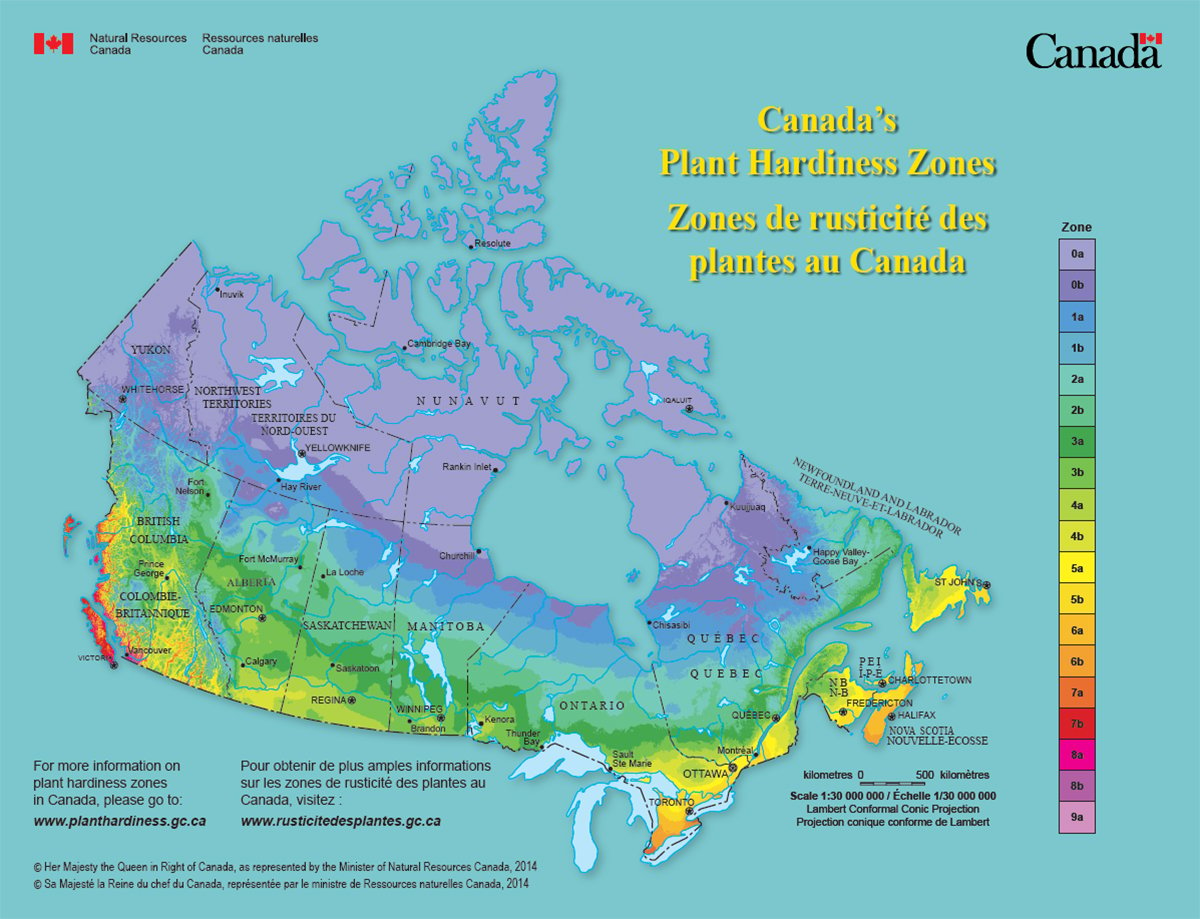Canadian companies are forced to import organic grain to satisfy domestic demand
America is the largest market in the world for organic food.
Consumers in that country bought nearly $30 billion worth of organic food and beverages in 2012, up 10 percent from the previous year, according to the World of Organic Agriculture report, an annual publication featuring organic trends and statistics.
However, North American farmers can’t keep up with the demand.
The Canadian Organic Value Chain Roundtable says Canadian and American farmers produce 25 percent of the world’s organic grains and oilseeds, but Canada and the U.S. constitutes 48 percent of the world’s market for organic food.
Read Also

Canada’s plant hardiness zones receive update
The latest update to Canada’s plant hardiness zones and plant hardiness maps was released this summer.
“The supply in North America isn’t big enough for demand,” said Terry Tyson, a buyer with Grain Millers in Yorkton, Sask.
“In the last four years … there’s been one (organic) grain or another that’s been significantly short.”
Consequently, U.S. organic processors and food manufacturers are desperate for prairie grain and oilseeds, and they’re willing to pay almost any price.
“They’re trying to get it out of Alberta and Saskatchewan, (and) they have a bigger pull because they want a bigger volume,” said Keri Sharpe, Alberta Agriculture’s organic business development specialist.
Tyson said Americans buy most of the organic grain produced in Western Canada.
The power of the American market can cause shortages in Canada, which has forced Canadian companies to import organic grain to satisfy domestic demand.
“In the area of the grains where I’m most knowledgeable, yes, I and most of my competitors on the buying side are importing grains from various parts of the world for both human and animal consumption,” said Tom Manley, owner of Homestead Organics in Berwick, Ont.
The imports come from a variety of countries, including Ukraine, Romania, Kazakhstan, Turkey and India.
“Those countries are supplying Canada (with) a significant number of organic grains right now: wheat, corn, peas.”
In Ontario, the shortage is most acute for organic feed grains. As an example, Manley supplies organic feed to an egg producer near Montreal.
When his client asked for another shipment of corn, Manley didn’t have any Canadian corn available.
“I said, ‘well, I can offer you Romanian corn because I have nothing else.’ ”
The buyer had questions about Romanian certification standards and the quality of the corn, but tests showed it was fine.
“They (the Romanian exporter) are certified by the same international certifier that I’m certified with,” Manley said.
He said it’s not surprising that Eastern Canada imports organic grain from other parts of the world because importing corn from Eastern Europe costs about the same as shipping wheat from Saskatchewan to eastern Ontario.
“Shipping containers are very efficient,” he said.
“(But) our priority is local. We empty all the bins. No one is stuck with grains.”
See also: Consumers want organic, so why are farmers wary?
See also: Which statistics?















